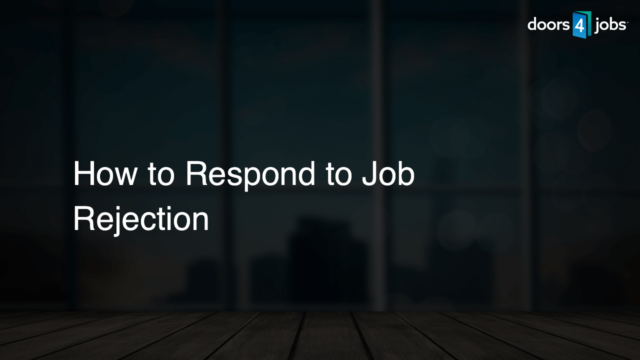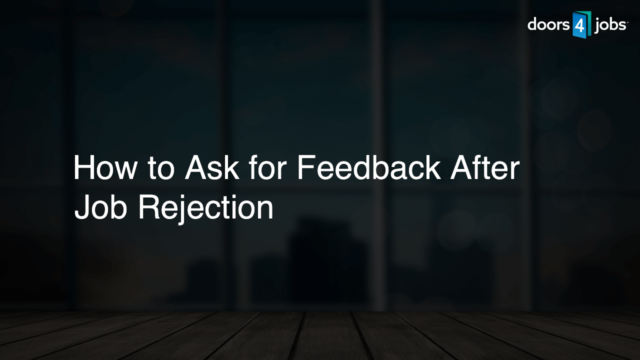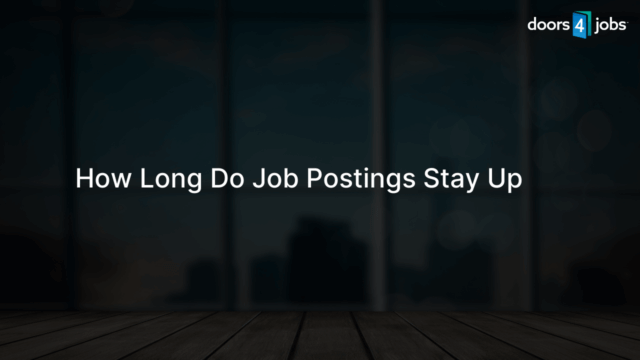If you didn’t get the job, you might notice a lack of communication or a generic rejection email from the employer. Other signs include being removed from their social media or seeing that the job posting remains active even after your interview. Ultimately, you can confirm by reaching out to the hiring manager.
Signs That You Didn’t Get the Job
Lack of Communication
After an interview, a lack of communication from the hiring manager or HR department can indicate that you didn’t get the job. If the company fails to respond to your follow-up emails or calls, it’s likely you weren’t their top choice.
Generic Rejection Email
Receiving a generic, impersonal rejection email suggests that you didn’t get the job. Usually, these emails don’t provide much feedback and are sent to multiple candidates at once.
Removed From Company’s Social Media
If you were connected with a company’s representative in social media, being removed or unfollowed could signify you didn’t get the job. Employers often separate themselves from unsuccessful candidates to maintain a professional image.
Job Posting Remains Active
If the job posting remains active after your interview, it’s possible the company is still searching for the right candidate and you didn’t get the job. This is especially true if the posting has been refreshed or reposted.
Actions to Confirm Your Situation
Reach Out to the Hiring Manager
If you’re unsure about the outcome of your interview, reach out to the hiring manager for clarification. By asking for feedback, you can gain insights into your performance and any improvements you can make for future interviews.
Connect with Other Applicants
Connecting with other applicants allows you to compare experiences and share information about the hiring process. If someone else has received a job offer or updates from the company, it can provide insight into your situation.
Be Proactive and Keep Searching
While waiting for a response, don’t limit yourself to one job opportunity. Continue searching and applying for jobs to increase your chances of finding the right position for your career goals.
Analyzing Your Interview Performance
It’s crucial to assess your interview performance to gain insights into the possible reasons why you may not have landed the job. Consider the following aspects while doing so:
Review Your Preparation
Reflect on your level of preparation for the interview. Were you well-versed in the company’s background, mission, and values? Strong preparation is essential for success in interviews, as insufficient knowledge about the prospective employer may compromise your performance.
Identifying Weak Points
Consider if there were any specific questions or topics that you struggled with during the interview. If possible, devise strategies to overcome those weak areas in future interviews to improve your chances of success.
Body Language and Tone
Body language and tone play crucial roles in conveying enthusiasm, energy, and self-confidence during interviews. Reflect on your non-verbal communication and identify if it could be a contributing factor to not getting the job.
Effective Use of Rejection to Your Advantage
Request Constructive Feedback
While some employers will provide feedback proactively, it’s a good idea to request constructive feedback if it’s not readily offered. This will help you identify areas of improvement and prepare more effectively for future interviews.
Keep Developing Your Skills
Take the lessons learned from your rejected application and focus on further developing your skills. Seek out opportunities to improve your skillset by attending workshops, enrolling in courses, or joining professional groups relevant to your field.
Maintain a Positive Attitude
Job search setbacks can be disheartening, but maintaining a positive attitude is crucial for maintaining momentum in your job hunt. Stay focused on your goals and continue to search proactively, knowing that persistence and resilience will ultimately lead you to the right opportunity.
Frequently Asked Questions
Here are some common questions and answers related to determining whether you didn’t get a job, offering further insights to help you understand the job application process and how to handle rejection.
How long should I wait for a response after the interview before concluding that I didn’t get the job?
Typically, you should wait about 1-2 weeks for a response after an interview. However, it’s important to consider the given timeframe provided by the employer, which can vary based on the company and industry. If you haven’t heard back after the specified time, you can follow up with the hiring manager to inquire about the hiring progress.
Can I ask the hiring manager why I didn’t get the job?
Yes, you can ask the hiring manager for feedback or reasons why you didn’t get the job. It’s important to approach this request professionally and respectfully, showing your intention to learn and improve for future opportunities. Additionally, not every employer will provide detailed feedback, but asking for it demonstrates your commitment to professional growth.
Is it appropriate to apply for another position in the same company after rejection?
Yes, it is appropriate to apply for another position in the same company if you feel that you are a good fit for it. It’s important to read the job description carefully and evaluate if your skills and experience match the requirements for the new role. You can also mention your previous interview experience in your cover letter, showcasing your continued interest in the organization.
Should I keep in touch with the hiring manager and the company after being rejected?
Maintaining contact can be beneficial if a future opportunity arises at the company that aligns with your skills and experience. It is crucial to remain professional and respectful in your communication, as fostering a positive relationship could lead to potential job openings in the future.
How do I stay motivated after multiple job rejections?
Identifying and learning from your experiences is an important part of handling job rejections. Focus on improving your interview technique, updating your resume, and expanding your network to increase your chances of finding the right job opportunity. Remember to stay persistent, maintain a positive mindset, and continue building your skills to enhance your employability in the long run.










